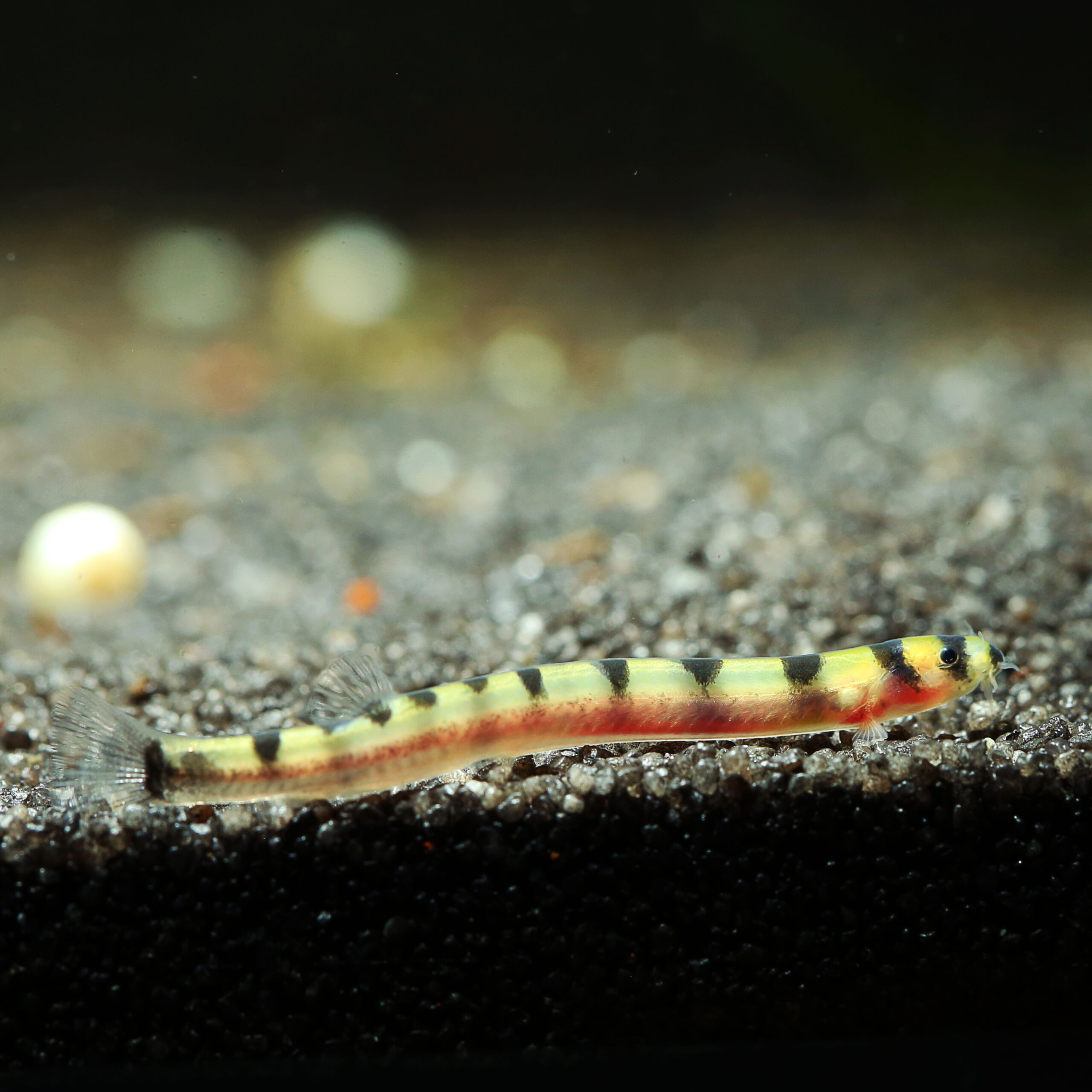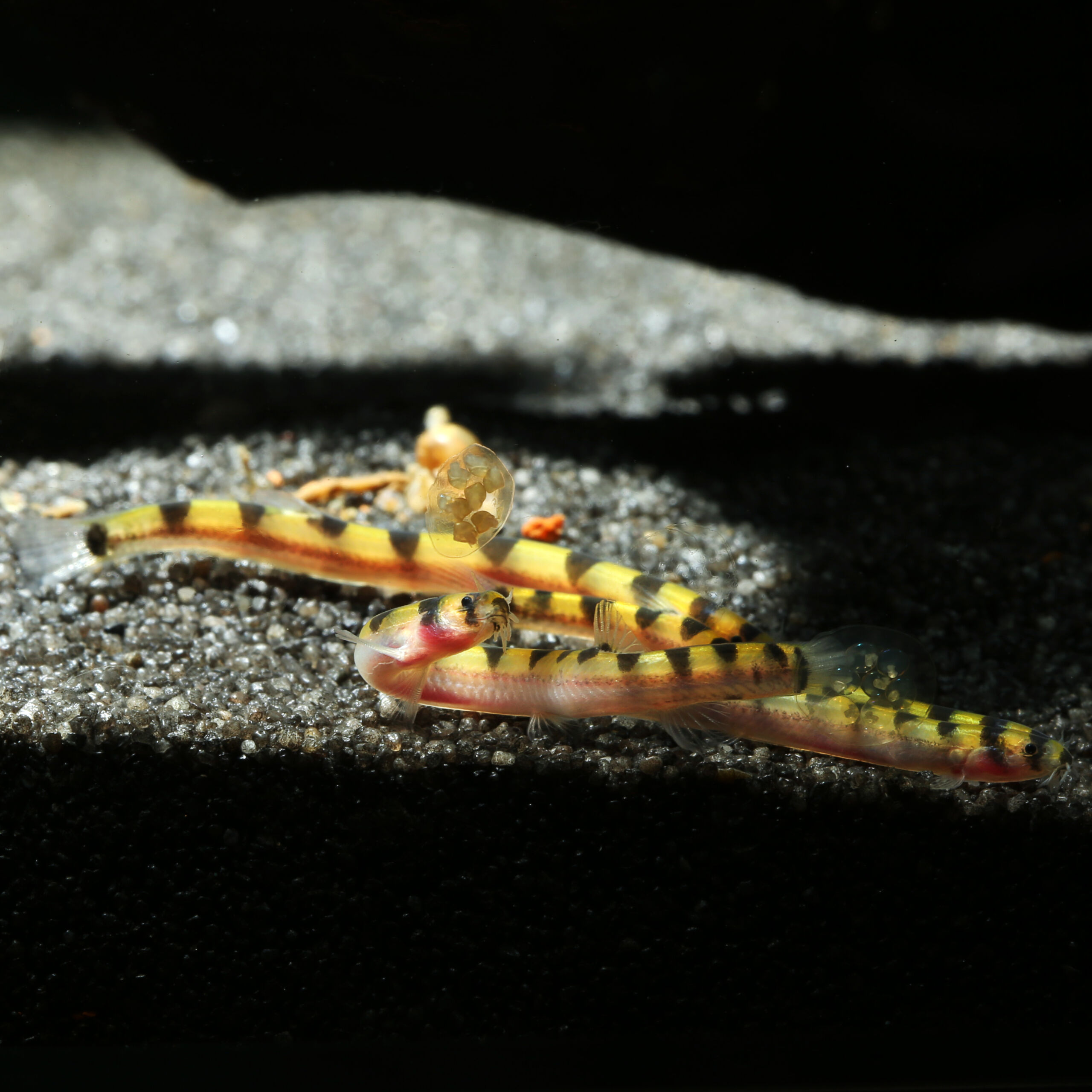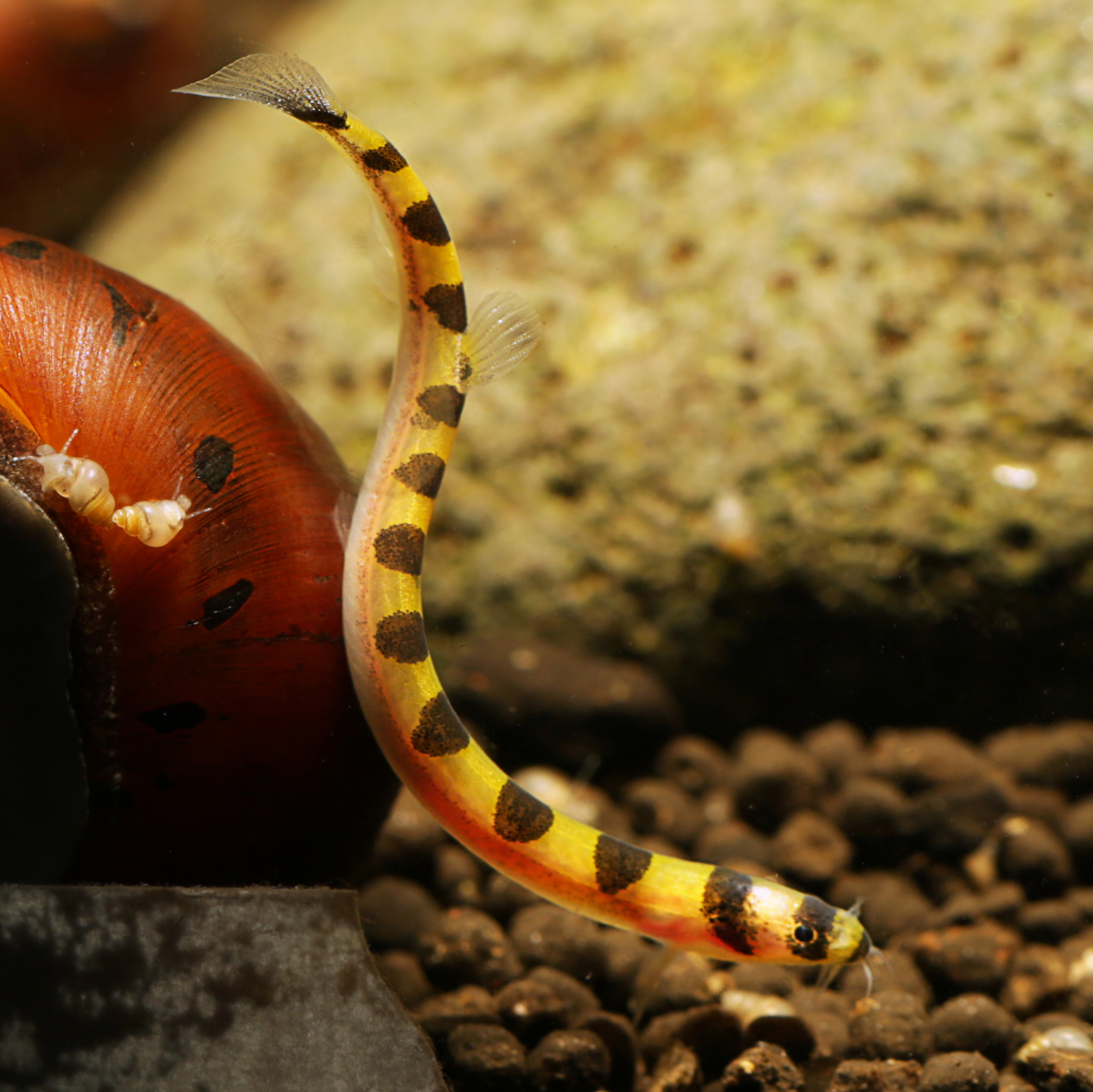Dwarf Kuhli Loach
Pangio cuneovirgata
The Dwarf Kuhli Loach is a pretty, elongated fish that looks particularly cute due to its small size.
- peaceful bottom dweller
- pretty spot pattern
- particularly small species
Out of stock
Receive in-stock notifications for this.
 Delivery in a few working days
Delivery in a few working days
 Free shipping from €60 across Austria
Free shipping from €60 across Austria





Important data
Product description & details
The Dwarf Kuhli Loach, Pangio cuneovirgata, is a nocturnal freshwater fish that originates in Southeast Asia and is found in Indonesia, India and Bangladesh, among other places. With a maximum body length of only 4cm, or in rare cases 5cm, it is one of the smallest representatives of the kuhli loaches. As with all animals in the genus Pangio, the body is scaleless and noticeably elongated, giving the loach an eel-like appearance. This species is also characterized by the dark, saddle-shaped spots that adorn the fish from the head to the tail fin.
Care in the aquarium
The Dwarf Kuhli Loach should be kept in a group with at least 6 conspecifics and can be kept in an aquarium that holds 54 liters. Pangio cuneovirgata feels comfortable in a tank with dense planting, shelter options and dim lighting. Fine, non-sharp-edged substrates such as sand or soil are suitable, as this loach loves to dig and burrow into the ground. Soft to medium-hard water with a temperature between 20 and 26°C is optimal. Socializing this calm and extremely peaceful fish with other peaceful animals is possible without any problems.
Feeding
As omnivores, the Dwarf Kuhli Loach is not too picky. In nature, it mainly eats small, aquatic animals such as insect larvae or nematodes, but plant material such as algae is also on its menu. Small frozen and live food is therefore preferred in the aquarium. Dry food in the form of flakes or granules is also accepted.
Sexual characteristics and breeding
The sexes of the Dwarf Kuhli Loach differ in that the females are paler than the males and are also fuller at sexually mature age and have a visible spawning base. Breeding in an aquarium is not that easy and often happens by chance. This requires soft water as well as stone structures or roots that form narrow gaps. The spawning females squeeze through these gaps to squeeze out the eggs, which are then fertilized by a male. The young fish larvae hatch from these greenish colored eggs, that adhere to the substrate, after about 1-3 days.







